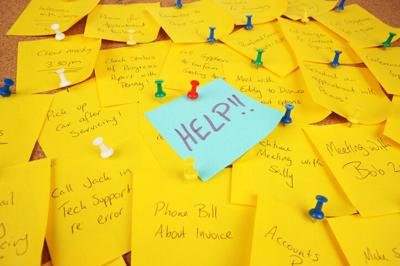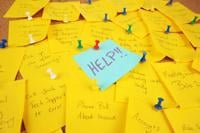Overscheduling may seem like the right thing to do to impress supervisors and colleagues, but there’s a big difference between cramming too much into our lives and working hard.
In fact, overscheduling can be one of the biggest mistakes when it comes to planning and can actually wreak havoc on one’s schedule and even their life.
So why then do so many people have a full calendar? There is no simple answer.
Deborah Vinall, a licensed mental health therapist and doctor of psychology with the California-based Tamar Counseling Services, believes people overbook themselves “in order to feel significant.”
“People often fall into the trap of overscheduling because they have a people-pleasing mentality wherein they struggle to set boundaries,” Vinall says. “Some begin with full lives due to economic demands to work many hours, and a sense of obligation or guilt layered on top leads them to continue to overschedule rather than prioritizing rest and relaxation.”
Psychotherapist Jason Shiers says he has encountered many individuals who opt to overschedule due to a “fear of missing out.”
“I believe there are a variety of reasons, including the fear of missing out,” says Shiers, who works for United Recovery California. “People also overschedule based on the idea that being busy equals success and pleasure and the pressure to live up to others’ standards of living. People may strive to cram too much into their days or lives, but the problem is overscheduling may not result in enjoyment and instead contribute to burnout, tension and worry.”
Feeling like one has something to prove — either to themselves or others — is one reason why clinical social worker Steve Carleton, of the Phoenix-based Gallus Detox, believes people overschedule.
“Some might think that by having a full schedule and staying constantly busy they will be seen as successful or important,” Carleton says. “In other cases, it could simply be a fear of missing out on opportunities or experiences. Maybe they think that if they don't make the most of their life, then something important could pass them by. And for some, it could be because of anxiety or pressure — maybe they had a set, strict timeline in their head on how life should go and feel like if they don't keep up with it, everything will fall apart.”
Carleton warns that pursuing a fulfilling and meaningful lifestyle does not necessarily require constantly being busy or having an overly full schedule.
“Happiness and contentment are not always found by doing more, but in the quality of experiences that we have,” he says. “So rather than trying to fill up your days with too much activity, it may be more beneficial to focus on pursuing activities that you truly enjoy and that bring you joy. That way, you can make the most out of life without sacrificing your own happiness.”
Overscheduling is not solely a problem for adults. It can cause issues for children as well, and Shiers cautions parents about putting too much on their child’s plate.
“Overscheduling by parents can have a negative impact on the emotional and physical health of their children,” Shiers says. “Children who are overscheduled may experience tension, anxiety and overload. It could also result in a lack of opportunities for self-reflection, unstructured play and relaxation, all of which are essential for a child's healthy growth.”
Shiers adds when parents overschedule their child it may put a strain on the parent-child bond since parents may get too preoccupied with their children’s activities and overlook other crucial facets of their bond.
“It's important for parents to strike a balance between planned activities and free time, and to put their kids' needs ahead of their own or society's expectations,” he says.
Carleton echoes Shiers’ comments and believes overscheduling can be detrimental to youngsters just like it can be for adults.
“Down-time is very important for children and their developing brains,” he says. “While there are many benefits to the activities children may be offered, the trade-off is a loss of free, creative time. Self-directed play is the mechanism through which developing brains learn the crucial tasks of organization and self-management, essential skills for school, work, and life. Allowing boredom facilitates space for creativity to arise.”
He adds that overscheduling can also lead to a loss of sufficient time for sleep, which can impact attitude as well as academics.
“This may bring on mood dysregulation, decreased flexibility and resilience, poorer academic functioning and increased social struggles,” Carleton says.
Parents who overschedule their children may not only be negatively impacting them now, but it may cause problems in adulthood as well, says New Jersey-based licensed clinician Megan Tangradi.
“When children don’t have enough leisure time to relax and explore their own interests, they can become overwhelmed and stressed,” Tangradi says. “They need time to process their emotions and explore their own passions or interests. Overscheduling can result in a lack of time to develop healthy social relationships with other children, which can lead to problems in adulthood such as difficulty forming meaningful connections. When you don’t take pauses, this can lead to exhaustion and an overall feeling of unhappiness.”

